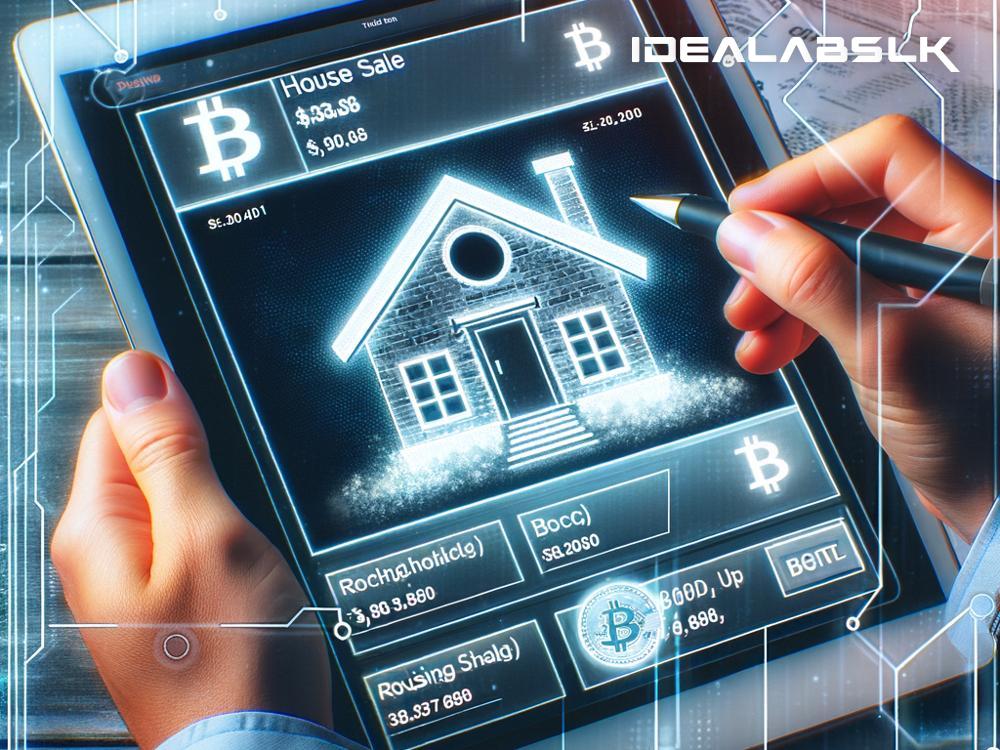Blockchain in Real Estate: Enhancing Property Listings and Market Visibility
Blockchain technology, which is the backbone of cryptocurrencies like Bitcoin, has steadily made its way into various industries, revolutionizing traditional operations. Among these industries, real estate is one sector where blockchain shows immense promise, particularly in improving property listings and market visibility. But what does this really mean, and how does it exactly work? Let’s dive into the world of blockchain in real estate and explore its profound impacts in simple terms.
Understanding Blockchain in a Nutshell
Before we delve into its role in real estate, it helps to grasp what blockchain technology is all about. Imagine a digital ledger that is accessible to numerous people at once. This ledger securely records transactions (such as buying or selling property) across several computers. The beauty of blockchain is that no single entity controls this ledger; instead, it's decentralized and transparent, making the information it holds accurate and tamper-proof.
The Traditional Real Estate Listing Scenario
Traditionally, the process of listing and discovering real estate properties involves multiple intermediaries, including real estate agents, listing services, and legal consultants. This not only makes the process time-consuming and costly but also often leads to a lack of transparency. Sellers may find themselves paying hefty commissions, while buyers may struggle to get complete, trustworthy information about property history or ownership.
How Blockchain is Changing the Game
Blockchain technology offers an innovative solution to these challenges.
-
Decentralization and Transparency: With blockchain, property listings are stored on a public ledger, open for verification by anyone. This means buyers can directly access comprehensive and accurate property history, including previous transactions and ownership data, without going through layers of intermediaries.
-
Smart Contracts: These are self-executing contracts with terms of agreement written directly into code. In the context of real estate, smart contracts can automate various processes such as property search, verification, and even payments, substantially lowering transaction costs and time.
-
Tokenization of Assets: This refers to the conversion of physical assets (like buildings or apartments) into digital tokens on the blockchain. These tokens represent ownership or investment in real property and can be bought and sold easily. This not only enhances liquidity in the real estate market but also enables smaller investors to participate by purchasing fractions of property tokens.
-
Universal Listings Platform: Blockchain can facilitate the creation of a universal, decentralized platform for property listings. This platform would be a one-stop-shop for buyers and sellers worldwide, eliminating geographical barriers and bringing unparalleled exposure to listings.
Practical Advantages of Blockchain in Real Estate
-
Reduced Costs and Enhanced Efficiency: By eliminating or significantly reducing the need for intermediaries, blockchain paves the way for lower transaction fees and faster processing times. Smart contracts automate and streamline the various steps involved in buying or selling property, from initial offers to final settlements.
-
Improved Trust and Security: The immutable nature of blockchain ensures that once a transaction is recorded, it cannot be altered or deleted. This greatly reduces the risk of fraud and makes it easier to resolve disputes, thereby fostering trust among participants in the real estate market.
-
Global Market Accessibility: The tokenization of real estate assets and the creation of a universal listings platform democratize access to real estate investment. Investors from anywhere in the world can easily explore and invest in properties overseas, broadening their investment portfolios like never before.
-
Greater Market Visibility: For sellers, blockchain’s global reach means their property listings gain visibility beyond local or national boundaries, attracting a broader audience of potential buyers. This can lead to more competitive pricing and quicker sales.
Looking Ahead
Despite its potential, the integration of blockchain in real estate is still in its nascent stages, facing hurdles such as regulatory challenges and the need for widespread adoption among stakeholders. However, with its promise of increased efficiency, transparency, and accessibility, it's not hard to imagine a near future where blockchain becomes integral to real estate transactions.
In conclusion, blockchain technology is set to revolutionize the way we list, discover, and transact real estate properties. By enhancing property listings and market visibility, blockchain not only promises to make the real estate market more efficient and trustworthy but also more inclusive and accessible to a global audience. As technology advances and adoption grows, the dream of a more streamlined, transparent real estate sector is becoming an increasingly tangible reality.

